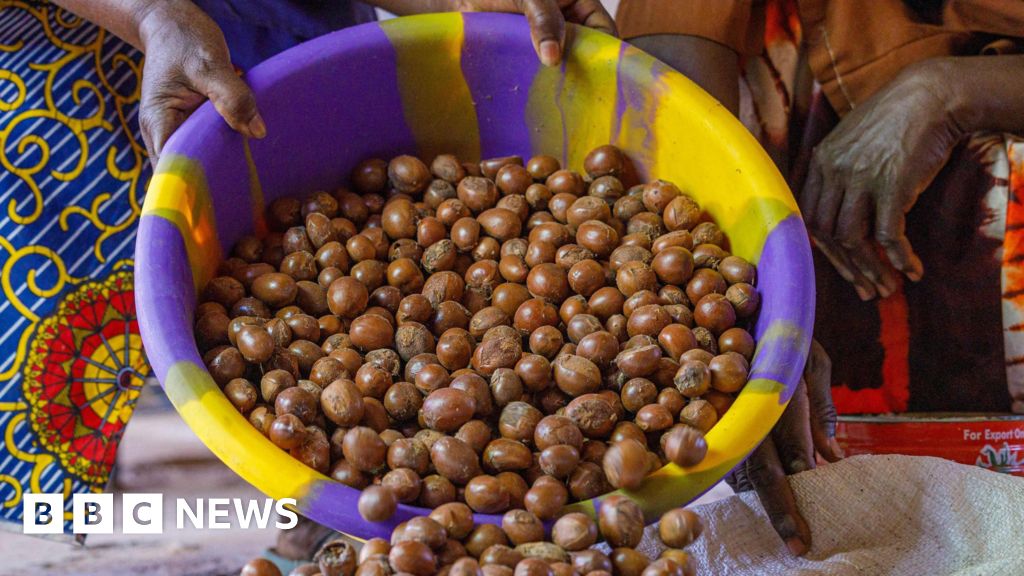Nigeria has announced a six-month ban on the export of raw shea nuts, from which many beauty creams are made. The move aims to make the trade more lucrative, as Nigeria has been losing out by not producing much shea butter locally.
The country produces nearly 40% of the world's annual crop but only accounts for 1% of the $6.5bn (£4.8bn) global market - a situation Vice-President Kashim Shettima described as 'unacceptable.'
Harvested fruit from shea nut trees must be crushed, roasted, and boiled to extract their oil to produce the shea butter used in cosmetics.
The butter is also used in the food industry in producing sweets such as chocolate and ice creams, and in pharmaceuticals. Shea trees grow in the wild from West to East Africa, known as the 'shea belt.' Small-scale farmers, often women, plant and harvest them.
Shettima indicated that the temporary ban would enable Nigeria to transition from being an exporter of raw nuts to a global supplier of refined shea products. He emphasized the goals of industrialization, rural transformation, gender empowerment, and expanding Nigeria's global trade footprint.
In the short term, the aim is to see Nigeria's earnings from the fruit of the shea nut trees grow from $65m to $300m annually.
Nigeria Agriculture Minister Abubakar Kyari noted that the nation produces a crop of 350,000 tonnes a year, with a significant portion disappearing through unregulated informal trade.
Dr. Ahmed Ismail, an agriculture expert, pointed out that many farmers are unaware of the actual value of shea nuts and face exploitation as businessmen buy them cheaply in remote areas. He viewed the ban as a positive step toward improved regulations.




















